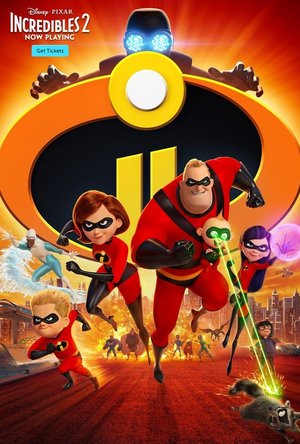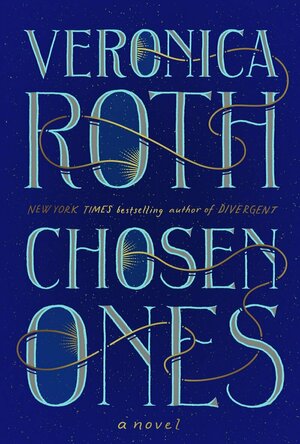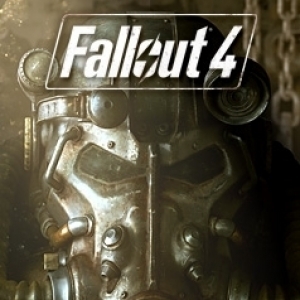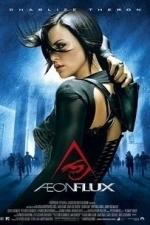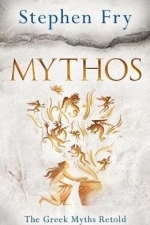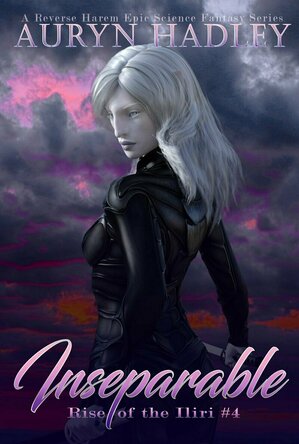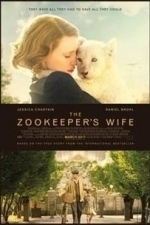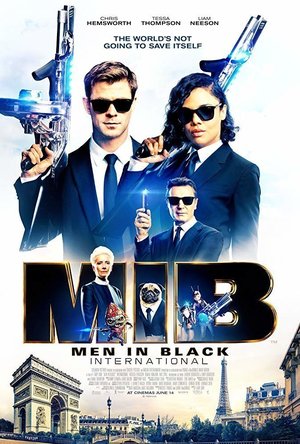Search
Search results
Phillip McSween (751 KP) rated The Incredibles 2 (2018) in Movies
Dec 11, 2018
On Par With the Best
If The Incredibles isn’t one of the top five superhero films of all time, it’s definitely top ten. For awhile, I had it billed as the greatest. It has everything you need which created a tough act to follow. But follow it they did fourteen years later with The Incredibles 2. The sequel continues the story of the superhero family and their dealings with being abnormal in a normal world.
Acting: 10
Beginning: 10
Characters: 10
Jack-Jack. Just…Jack-Jack. I could go into sophisticated detail about the depth of each of these characters and their internal struggles, but all you really need to know is Jack-Jack.
Cinematography/Visuals: 10
The animation in this movie is, for lack of a better word, incredible. Pixar seems to age like a fine wine, constantly improving upon themselves. Facial features are crisp, colors are vivid leaving the screen bursting with life. It operates just like a big budget superhero film and, in some ways, even better. Animation has a leg up because it allows you to always capture the desired moment at the perfect time. Watching the family work in tandem and seeing all their powers come together on screen is reminiscent of the first Avengers film.
Conflict: 10
No good battles arise without a good villain and Incredibles 2 doesn’t disappoint here. The movie is action-packed beset with high stakes. There are a handful of slow points where the film hiccups, but the fight sequences more than make up for it. Any scene with Dash in it and you never know what’s going to happen! He’s growing in his powers but still has yet to realize his own strength which makes him fun to watch.
Genre: 8
Doesn’t quite rank in the upper echelon of top superhero movies of 2018 (Black Panther, Avengers: Infinity War), but it’s not too far behind. It makes you feel, it makes you laugh, it makes you wow. Three things that make it a top choice for the year.
Memorability: 10
Jack-Jack Vs. The Raccoon is a scene I could watch a million times. Never gets old. The attention to detail in that scene and the way it unfolds is flawless. I also liked the fact that this movie seemed even darker than the first appealing more to adults at times than children. The first one toed the line, but the sequel jumped right over.
Pace: 8
As I mentioned earlier, there were some points in the movie where things got slow and you were waiting for it to pick back up. It didn’t happen often but definitely enough to be noticeable. Nothing that derailed the movie too much however as the action and hilarity more than made up for the slow points.
Plot: 8
Resolution: 10
Solid ending that ties the film up perfectly. It leaves you wanting more but, at the same time, if the series concluded here, I’d be good with it. No spoilers, but I’ll just say you’ll be satisfied.
Overall: 94
Incredibles 2 gets off to a fast start and doesn’t let you go. There is a scene with Edna and Jack-Jack that just makes me happy as hell and sums up my feeling for the whole movie experience. See it and love it.
Acting: 10
Beginning: 10
Characters: 10
Jack-Jack. Just…Jack-Jack. I could go into sophisticated detail about the depth of each of these characters and their internal struggles, but all you really need to know is Jack-Jack.
Cinematography/Visuals: 10
The animation in this movie is, for lack of a better word, incredible. Pixar seems to age like a fine wine, constantly improving upon themselves. Facial features are crisp, colors are vivid leaving the screen bursting with life. It operates just like a big budget superhero film and, in some ways, even better. Animation has a leg up because it allows you to always capture the desired moment at the perfect time. Watching the family work in tandem and seeing all their powers come together on screen is reminiscent of the first Avengers film.
Conflict: 10
No good battles arise without a good villain and Incredibles 2 doesn’t disappoint here. The movie is action-packed beset with high stakes. There are a handful of slow points where the film hiccups, but the fight sequences more than make up for it. Any scene with Dash in it and you never know what’s going to happen! He’s growing in his powers but still has yet to realize his own strength which makes him fun to watch.
Genre: 8
Doesn’t quite rank in the upper echelon of top superhero movies of 2018 (Black Panther, Avengers: Infinity War), but it’s not too far behind. It makes you feel, it makes you laugh, it makes you wow. Three things that make it a top choice for the year.
Memorability: 10
Jack-Jack Vs. The Raccoon is a scene I could watch a million times. Never gets old. The attention to detail in that scene and the way it unfolds is flawless. I also liked the fact that this movie seemed even darker than the first appealing more to adults at times than children. The first one toed the line, but the sequel jumped right over.
Pace: 8
As I mentioned earlier, there were some points in the movie where things got slow and you were waiting for it to pick back up. It didn’t happen often but definitely enough to be noticeable. Nothing that derailed the movie too much however as the action and hilarity more than made up for the slow points.
Plot: 8
Resolution: 10
Solid ending that ties the film up perfectly. It leaves you wanting more but, at the same time, if the series concluded here, I’d be good with it. No spoilers, but I’ll just say you’ll be satisfied.
Overall: 94
Incredibles 2 gets off to a fast start and doesn’t let you go. There is a scene with Edna and Jack-Jack that just makes me happy as hell and sums up my feeling for the whole movie experience. See it and love it.
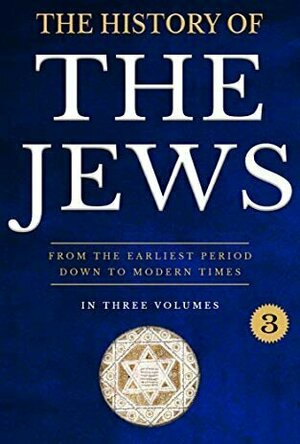
The History of the Jews
Book
The History Of The Jews: From The Earliest Period Down To Modern Times, In Three Volumes. (Vol. 3)...
Hadley (567 KP) rated Chosen Ones in Books
Jul 21, 2021
Writing (3 more)
Inconsistencies
Constantly stopping the story
Stereo-typical character
What usually draws readers into a hero versus villain story is to see the hero's fight to victory. The struggle, the refusal to back down - - - we usually put ourselves into this character and root for them to win at any cost. But the Chosen Ones starts us off after our heroes are victorious in the battle against the villain. The heroes are trying to cope with every day life after achieving the most important thing they would ever accomplish, but memories of the war against the Dark One keep them from returning to that normal life.
Sloane is our main character - - - one of the five heroes that was picked by a prophecy years ago to take down the Dark One. One of the effects of battling the villain for her is she now endures PTSD-induced nightmares. We meet her in the midst of one of these nightmares, where she nearly stabs her boyfriend, Matt (also one of the five heroes), with a kitchen knife. And this isn't the first time this has happened: it happens enough that Sloane was put on medication to help with her PTSD, as well as going to therapy.
But with the ten year anniversary of the Dark One's defeat looming ahead, life seems to be getting even harder for the heroes. All the heroes want is to move on and forget the war had ever happened - - - but then something happens that causes them to relive the Dark One's fight all over again.
The heroes end up on a magic-using world called Genetrix where a man going by the name the Resurrectionist is causing the same destruction as the Dark One did on their world. Disoriented and curious, the heroes have no choice but to believe the two main magic users who brought them there, Aelia and Nero. The two seem to be the ones in charge of finding the chosen one to take down the Resurrectionist. But soon after the heroes agree to take down this world's Dark One, they begin to believe that Aelia and Nero are hiding information from them.
The heroes decide to focus on learning to use magic, so they can defend themselves on this world. With the help of siphons, the heroes are able to begin practicing magic for their fight with the Resurrectionist. . . but for Sloane, she is unable to get her siphon to work, instead, she contains an ability that came from a cursed object from their world, a cursed object that wants her back.
This book contains a lot of the problems that went on during 2020, possibly too many of them. Unlike most books released last year, Chosen Ones didn't do a well enough job of hiding reality in plain sight. Chosen Ones also made the mistake of cutting up the story with intermissions of newspaper articles and government reports. Divergent author Veronica Roth disrupted the flow of the story by doing such that it felt like the story continuously came to a stand still.
Chosen Ones also plays up the Young Adult genre tropes. The relationship between Sloane and Mox happens so quickly that it isn't believable to the reader, and the result is awkward to the point of embarrassing. Also, the friendship between the heroes is very flat, so much so that when conflict arises, I was left believing that no one cared if the other one died.
But it was the idea of the story that hooked me as a reader - - - movies, television shows, and other novels normally focus on the heroes during the great fight with the villain, allowing readers to live the war and pick the fighter they want to win. In this novel, the connection with the heroes is severely lacking, especially when the only character development happens to Sloane. Very reminiscent of Mira Grant's 'Feed,' I couldn't bring myself to like the main character. Sloane tries too hard to be a strong and independent woman, she comes off as a teenager trapped in an adult woman's body, even Ines, one of the other female heroes, is a more well-put together character than Sloane is. This is the trope that is killing lead female characters in the Young Adult genre, but I suppose it's better than having the stereo-typical ditzy female lead characters most adult novels have.
Although the synopsis caused me to buy this book, I was really disappointed with the path in which Roth took it down. The biggest issue was how much of 2020's problems were shoved into one book because it took away from what this story could have been. The heroes are blatantly fighting Donald Trump aka the Dark One, and this subject has been done to-death so much that I couldn't get fully immersed into the story. They also fight against people who can do magic, including people who are apparently Wiccans - - - but Roth labels them as 'evil. ' Having known actually Wiccans in my life, I know that they believe in harming none. Roth's stereo-typing of anyone who is not her heroes shows a shallowness that is becoming more prevalent, unfortunately, in female writers.
Chosen Ones could have been so much more than what it was because it just ends up being another empty story that takes on today's problems just to sell a book. With inconsistencies and bad writing throughout, I can't recommend this book to anyone, but if you love YA tropes, then you'll love this one.
Sloane is our main character - - - one of the five heroes that was picked by a prophecy years ago to take down the Dark One. One of the effects of battling the villain for her is she now endures PTSD-induced nightmares. We meet her in the midst of one of these nightmares, where she nearly stabs her boyfriend, Matt (also one of the five heroes), with a kitchen knife. And this isn't the first time this has happened: it happens enough that Sloane was put on medication to help with her PTSD, as well as going to therapy.
But with the ten year anniversary of the Dark One's defeat looming ahead, life seems to be getting even harder for the heroes. All the heroes want is to move on and forget the war had ever happened - - - but then something happens that causes them to relive the Dark One's fight all over again.
The heroes end up on a magic-using world called Genetrix where a man going by the name the Resurrectionist is causing the same destruction as the Dark One did on their world. Disoriented and curious, the heroes have no choice but to believe the two main magic users who brought them there, Aelia and Nero. The two seem to be the ones in charge of finding the chosen one to take down the Resurrectionist. But soon after the heroes agree to take down this world's Dark One, they begin to believe that Aelia and Nero are hiding information from them.
The heroes decide to focus on learning to use magic, so they can defend themselves on this world. With the help of siphons, the heroes are able to begin practicing magic for their fight with the Resurrectionist. . . but for Sloane, she is unable to get her siphon to work, instead, she contains an ability that came from a cursed object from their world, a cursed object that wants her back.
This book contains a lot of the problems that went on during 2020, possibly too many of them. Unlike most books released last year, Chosen Ones didn't do a well enough job of hiding reality in plain sight. Chosen Ones also made the mistake of cutting up the story with intermissions of newspaper articles and government reports. Divergent author Veronica Roth disrupted the flow of the story by doing such that it felt like the story continuously came to a stand still.
Chosen Ones also plays up the Young Adult genre tropes. The relationship between Sloane and Mox happens so quickly that it isn't believable to the reader, and the result is awkward to the point of embarrassing. Also, the friendship between the heroes is very flat, so much so that when conflict arises, I was left believing that no one cared if the other one died.
But it was the idea of the story that hooked me as a reader - - - movies, television shows, and other novels normally focus on the heroes during the great fight with the villain, allowing readers to live the war and pick the fighter they want to win. In this novel, the connection with the heroes is severely lacking, especially when the only character development happens to Sloane. Very reminiscent of Mira Grant's 'Feed,' I couldn't bring myself to like the main character. Sloane tries too hard to be a strong and independent woman, she comes off as a teenager trapped in an adult woman's body, even Ines, one of the other female heroes, is a more well-put together character than Sloane is. This is the trope that is killing lead female characters in the Young Adult genre, but I suppose it's better than having the stereo-typical ditzy female lead characters most adult novels have.
Although the synopsis caused me to buy this book, I was really disappointed with the path in which Roth took it down. The biggest issue was how much of 2020's problems were shoved into one book because it took away from what this story could have been. The heroes are blatantly fighting Donald Trump aka the Dark One, and this subject has been done to-death so much that I couldn't get fully immersed into the story. They also fight against people who can do magic, including people who are apparently Wiccans - - - but Roth labels them as 'evil. ' Having known actually Wiccans in my life, I know that they believe in harming none. Roth's stereo-typing of anyone who is not her heroes shows a shallowness that is becoming more prevalent, unfortunately, in female writers.
Chosen Ones could have been so much more than what it was because it just ends up being another empty story that takes on today's problems just to sell a book. With inconsistencies and bad writing throughout, I can't recommend this book to anyone, but if you love YA tropes, then you'll love this one.
Mothergamer (1619 KP) rated the PC version of Fallout 4 in Video Games
Apr 3, 2019
I just finished my first play through of Fallout 4 on the PS4 and my overall impression is that it was amazing. I truly had fun playing it especially when I got to run around in power armor. We'll get to all that in a minute. First you start with the usual creation of your character. You can play as male or female. I chose female and let's just say the hairstyle choices were interesting. Again I ask, why were there several types of bald? At least there were some long hair choices, but I went for a fancy updo. There are a lot of choices for the face also and you can add scarring if you want or different facial features.
Once that was done, I started the story and the world seems like it's a nice place, you even get a cheerful talking robot by the name of Codsworth out of it. Then the Vault-Tec rep shows up at your door informing you that you and your family are approved for entry into Vault 111. A few minutes later a news report warns of a nuclear attack forcing you and your family to rush to the vault and as you're waiting to go in a nuclear bomb detonates in the distance causing even more panic. The platform you're on then lowers everyone into the vault and everyone is put into cryosleep. Years later, events cause you to be awakened and then your adventure in Fallout 4 begins.
Entering Vault 111
Things are not as your sole survivor remembers in their little town. Signs of war, desolation, and destruction are everywhere. You do run into your old pal Codsworth and he becomes your first companion. This also gives you a tutorial on the game controls and the crafting aspect of it i.e. rebuilding settlements. The controls are fairly easy to manage and you can go back and forth easily. Of course the big thing is to loot everything everywhere you go because salvaging things like metal and copper are important to building many things such as water pumps that give you purified water or radio beacons for recruiting settlers.
The old homestead isn't what it used to be.
After the tutorial is out of the way, you're instructed to head to Diamond City as part of the main story quest. Of course, you can explore other areas as you go which leads you to new characters and companions one of the first after Codsworth being your canine companion Dogmeat. There are 12 companions in all to find in Fallout 4 as you progress in your adventure. There are also 4 different factions that you can join and do a ton of quests for, but bear in mind that as part of the main story you are going to have to pick one and this affects your relationship with the remaining factions.
Just a sole survivor and their dog.
There's a lot to do in Fallout 4 with the various faction quests and radiant quests. There are also side quests from various cities and settlements which can keep you busy while doing the main story quest. Factor in the quests that you can do for your companions and there's at least 100 hours of game play or more. There are a ton of dangers while exploring the world of Fallout 4 like Queen Deathclaws, Super Mutants, and Raiders just to name a few. The SPECIAL (Strength, Perception, Endurance, Charisma, Intelligence, Agility, and Luck) system is here too and it's quite streamlined in the way your abilities are managed and each skill requires a higher rank to unlock as you progress via the perks chart.
Taking out some raiders.
The power armor was a great plus for me because it's like running around in a tank and kicking lots of ass and it was awesome! And while I liked the first power armor set I found, the best one to me was the X-01 power armor I found while doing a quest and it was a complete set too. This thing could stand up to all kinds of things even suicider Super Mutants. Walking away from explosions virtually untouched in the X-01 power armor was all kinds of amazing.
One of the first power armors I found.
Behold! The X-01 power armor in all its glory!
There are glitches of course, but not a lot. I only experienced a couple. One was with being stuck in the elevator in one building and the only fix was to reload my last save and start over. There was another one where I was floating above the ground and the game froze completely. Again, reloading my last save seemed to do the trick. Another thing that bothered me was all the radiant quests mainly from The Minutemen leader Preston Garvey because after a while they become tedious especially with the kidnapping ones when it seemed like the same NPC settler got kidnapped three times. I started to think that perhaps they were getting kidnapped on purpose just to screw with me. I also wish there had been a way for the factions to work together against the scary villain instead of forcing you to pick one and depending on your actions, the other factions would become your enemies. I wish there had been a varied path with some options instead of you had to be on this set path and there's no other way around it.
That being said, I enjoyed Fallout 4 a great deal. There's lots to see and do, tons of things to build, and plenty of adventure to be had. It's worth checking out and definitely worth having in your gaming collection.
Once that was done, I started the story and the world seems like it's a nice place, you even get a cheerful talking robot by the name of Codsworth out of it. Then the Vault-Tec rep shows up at your door informing you that you and your family are approved for entry into Vault 111. A few minutes later a news report warns of a nuclear attack forcing you and your family to rush to the vault and as you're waiting to go in a nuclear bomb detonates in the distance causing even more panic. The platform you're on then lowers everyone into the vault and everyone is put into cryosleep. Years later, events cause you to be awakened and then your adventure in Fallout 4 begins.
Entering Vault 111
Things are not as your sole survivor remembers in their little town. Signs of war, desolation, and destruction are everywhere. You do run into your old pal Codsworth and he becomes your first companion. This also gives you a tutorial on the game controls and the crafting aspect of it i.e. rebuilding settlements. The controls are fairly easy to manage and you can go back and forth easily. Of course the big thing is to loot everything everywhere you go because salvaging things like metal and copper are important to building many things such as water pumps that give you purified water or radio beacons for recruiting settlers.
The old homestead isn't what it used to be.
After the tutorial is out of the way, you're instructed to head to Diamond City as part of the main story quest. Of course, you can explore other areas as you go which leads you to new characters and companions one of the first after Codsworth being your canine companion Dogmeat. There are 12 companions in all to find in Fallout 4 as you progress in your adventure. There are also 4 different factions that you can join and do a ton of quests for, but bear in mind that as part of the main story you are going to have to pick one and this affects your relationship with the remaining factions.
Just a sole survivor and their dog.
There's a lot to do in Fallout 4 with the various faction quests and radiant quests. There are also side quests from various cities and settlements which can keep you busy while doing the main story quest. Factor in the quests that you can do for your companions and there's at least 100 hours of game play or more. There are a ton of dangers while exploring the world of Fallout 4 like Queen Deathclaws, Super Mutants, and Raiders just to name a few. The SPECIAL (Strength, Perception, Endurance, Charisma, Intelligence, Agility, and Luck) system is here too and it's quite streamlined in the way your abilities are managed and each skill requires a higher rank to unlock as you progress via the perks chart.
Taking out some raiders.
The power armor was a great plus for me because it's like running around in a tank and kicking lots of ass and it was awesome! And while I liked the first power armor set I found, the best one to me was the X-01 power armor I found while doing a quest and it was a complete set too. This thing could stand up to all kinds of things even suicider Super Mutants. Walking away from explosions virtually untouched in the X-01 power armor was all kinds of amazing.
One of the first power armors I found.
Behold! The X-01 power armor in all its glory!
There are glitches of course, but not a lot. I only experienced a couple. One was with being stuck in the elevator in one building and the only fix was to reload my last save and start over. There was another one where I was floating above the ground and the game froze completely. Again, reloading my last save seemed to do the trick. Another thing that bothered me was all the radiant quests mainly from The Minutemen leader Preston Garvey because after a while they become tedious especially with the kidnapping ones when it seemed like the same NPC settler got kidnapped three times. I started to think that perhaps they were getting kidnapped on purpose just to screw with me. I also wish there had been a way for the factions to work together against the scary villain instead of forcing you to pick one and depending on your actions, the other factions would become your enemies. I wish there had been a varied path with some options instead of you had to be on this set path and there's no other way around it.
That being said, I enjoyed Fallout 4 a great deal. There's lots to see and do, tons of things to build, and plenty of adventure to be had. It's worth checking out and definitely worth having in your gaming collection.
Darren (1599 KP) rated Aeon Flux (2005) in Movies
Jun 20, 2019
Story: We get a future world where humans have been nearly wiped out by a virus, good start. We have information about a dictator who has taken over because he had the cure of the virus and making sure his family stays in charge, Aeon is hired to kill him so a change can happen, but the first of many twists stops this. We have two people that both sides in a potential war want dead but these two hold the secret that could save mankind forever. We have seen it all before and in the future world we struggle to see a truly original idea, the twists save this from being plain boring but with very little use of supporting characters we don’t get much here. (6/10)
Actor Review
Charlize Theron: Aeon Flux deadly assassin who is assigned to kill Trevor Goodchild, but when she has a past connection with him she helps him uncover a truth that can change the future forever. Solid performance trying to make something out of a little known source material. (7/10)
aeon
Marton Csokas: Trevor Goodchild leader of the people who has cured the remaining people of a deadly virus but he is still working to uncover a truth that could save the peoples real future. Good performance in the supporting scientist role. (7/10)
trvor
Johnny Lee Miller: Oren Goodchild brother of Trevor who has always supported him but when the future could change he plans to take over and keep things running as before. Good villainous role wanting to make sure he can live forever. (7/10)
ohnny
Director Review: Karyn Kusama – Creates a basic entertaining film that never really challenges the audience. (5/10)
Action: Plenty of action but most is the same each time. (7/10)
Sci-Fi: Interesting look at the future after a virus that looks at many different parts of it including improving surviving. (7/10)
Settings: We are in one city for the whole film but it really doesn’t get used as well as it should have been. (6/10)
Special Effects: Basic special effects used in Aeon Flux with most of it being upgraded technology. (7/10)
Suggestion: I think this could be tried, it isn’t as good as it could be but can be entertaining at times. (Try It)
Best Part: Aeon entering a poisonous garden.
Worst Part: Been here seen that.
Action Scene Of The Film: Final battle
Believability: No (0/10)
Chances of Tears: No (0/10)
Chances of Sequel: No
Post Credits Scene: No
Oscar Chances: No
Box Office: $52 Million
Budget: $62 Million
Runtime: 1 Hour 33 Minutes
Tagline: The future is flux.
Overall: Fun but not original action
https://moviesreview101.com/2014/11/16/aeon-flux-2005/
Actor Review
Charlize Theron: Aeon Flux deadly assassin who is assigned to kill Trevor Goodchild, but when she has a past connection with him she helps him uncover a truth that can change the future forever. Solid performance trying to make something out of a little known source material. (7/10)
aeon
Marton Csokas: Trevor Goodchild leader of the people who has cured the remaining people of a deadly virus but he is still working to uncover a truth that could save the peoples real future. Good performance in the supporting scientist role. (7/10)
trvor
Johnny Lee Miller: Oren Goodchild brother of Trevor who has always supported him but when the future could change he plans to take over and keep things running as before. Good villainous role wanting to make sure he can live forever. (7/10)
ohnny
Director Review: Karyn Kusama – Creates a basic entertaining film that never really challenges the audience. (5/10)
Action: Plenty of action but most is the same each time. (7/10)
Sci-Fi: Interesting look at the future after a virus that looks at many different parts of it including improving surviving. (7/10)
Settings: We are in one city for the whole film but it really doesn’t get used as well as it should have been. (6/10)
Special Effects: Basic special effects used in Aeon Flux with most of it being upgraded technology. (7/10)
Suggestion: I think this could be tried, it isn’t as good as it could be but can be entertaining at times. (Try It)
Best Part: Aeon entering a poisonous garden.
Worst Part: Been here seen that.
Action Scene Of The Film: Final battle
Believability: No (0/10)
Chances of Tears: No (0/10)
Chances of Sequel: No
Post Credits Scene: No
Oscar Chances: No
Box Office: $52 Million
Budget: $62 Million
Runtime: 1 Hour 33 Minutes
Tagline: The future is flux.
Overall: Fun but not original action
https://moviesreview101.com/2014/11/16/aeon-flux-2005/
Accessible (2 more)
Simplified
Incredible insight into how much the modern world has taken from Greek and Roman culture
A lot of pretty complex names to remember (1 more)
Constant footnotes (usually at least one per page) to explain certain aspects, or highlight an interesting fact.
Mythos - The Greek legends retold
Ah, what a great read. Stephen Fry writes exactly how you would expect him to, if you've ever heard him speak. He understands the subject matter, and more importantly, realises how easily a reader will be overwhelmed by the sheer amount of players in these myths and answers that problem without condescension.
The book reads as a quasi-novel, from the birth of the universe to the third and fourth generations of immortals (this includes the creators, the titans, the gods, and mythical creatures/characters, spawns of titans and gods, gods and creatures, gods and men and all sorts.) and their adventures, each following on from the other.
I have always had an interest in the Greek myths and gods, and as I suggested above the really interesting part of these stories, beyond the very human nature of the immortals (jealousy, unreasonableness, duplicity, rage, deceit and pride) which makes for so much more of a believable creation theory, is the myriad ways they have influenced English language (any many others I'm sure). To give an example (I'm showing my own ignorance flagrantly here) a simple thing, the alphabet. It never occurred to me, in my own self centered existence, this simply come from the first and second letters of the Greek alphabet. Alpha and Beta. So simple, so obvious, yet I never made this connection.
The stories themselves are wonderful, and the best thing about them is they all tie in with a creation theory. Something, whatever it is, is learned, or created. Some paradigm is set, some moral conundrum is answered, or something in the world is explained by the end of every story told (the tides, the moon, wine, love, soul, war, sex, the seasons, humanity itself just to name a few). It's such an entertaining read, and I find myself telling anyone who will listen some of the revelations I find in this book page on page on page.
As an end note, don't be overwhelmed by the prospect of reading about these stories, this installment ONLY covers from creation, to the establishment of the twelve Greek gods, and their children. It stops before the even greater amount of legends stemming from human demigods (Hercules, Perseus etc) and these are picked up in Fry's most recent offering, Heroes (which I am yet to read).
If you have any interest in the Greek mythology, or etymology, or even history as a whole, this is absolutely one for you.
- Rob
The book reads as a quasi-novel, from the birth of the universe to the third and fourth generations of immortals (this includes the creators, the titans, the gods, and mythical creatures/characters, spawns of titans and gods, gods and creatures, gods and men and all sorts.) and their adventures, each following on from the other.
I have always had an interest in the Greek myths and gods, and as I suggested above the really interesting part of these stories, beyond the very human nature of the immortals (jealousy, unreasonableness, duplicity, rage, deceit and pride) which makes for so much more of a believable creation theory, is the myriad ways they have influenced English language (any many others I'm sure). To give an example (I'm showing my own ignorance flagrantly here) a simple thing, the alphabet. It never occurred to me, in my own self centered existence, this simply come from the first and second letters of the Greek alphabet. Alpha and Beta. So simple, so obvious, yet I never made this connection.
The stories themselves are wonderful, and the best thing about them is they all tie in with a creation theory. Something, whatever it is, is learned, or created. Some paradigm is set, some moral conundrum is answered, or something in the world is explained by the end of every story told (the tides, the moon, wine, love, soul, war, sex, the seasons, humanity itself just to name a few). It's such an entertaining read, and I find myself telling anyone who will listen some of the revelations I find in this book page on page on page.
As an end note, don't be overwhelmed by the prospect of reading about these stories, this installment ONLY covers from creation, to the establishment of the twelve Greek gods, and their children. It stops before the even greater amount of legends stemming from human demigods (Hercules, Perseus etc) and these are picked up in Fry's most recent offering, Heroes (which I am yet to read).
If you have any interest in the Greek mythology, or etymology, or even history as a whole, this is absolutely one for you.
- Rob
Lyndsey Gollogly (2893 KP) rated Inseparable (Rise of the Iliri #4) in Books
Feb 4, 2021
17 of 250
Kindle
Inseparable ( Rise of Iliri book 4)
By Auryn Hadley
Once read a review will be written via Smashbomb and link posted in comments
DISASTER! THE BLACK BLADES DISBANDED, AN ALLIANCE IN TURMOIL...
The intersecting worlds of the iliri, grauori, and men collide when an alliance is declared, and the humans renege. In the midst of offering an olive branch to other races, they seem secretly hellbent on destroying them all - and they begin by putting Sal on trial and disbanding the Black Blades. Auryn Hadley offers up deft commentary on racism between communities - melded with fantastical action-adventure in a world at war, and passionate erotic romance in this fourth installment of the Rise of the Iliri.
True to its title, in Inseparable, on the world of Ogun, it's the connections between all beings - human and otherwise - that will save or destroy them.
Her recent mission a success, fearless (and irresistibly arousing) iliri warrior Lieutenant Salryc Luxx gets thanks in the form of imprisonment by the Conglomerate of Free Citizens. Sal's not even sure what she's accused of, but she suspects it's the color of her pale skin - not her actions - that's really on trial.
Kinetry, an old comrade and ally of the Black Blades now forced to hold Sal, warns her that a rash of anti-iliri sentiment is sweeping Parliament and the military. In fact, it seems men don't care for any race but their own. But Kinetry doesn't know that the King of Anglia is on his way to the military stronghold. Nor does he know the King is bringing with him thousands of grauori soldiers, members of a race of formerly hidden human-like wolves whose hunting and battle skills are unmatched.
If the King arrives before Sal's trial is resolved, he'll learn something in the courtroom that may destroy all hope of the intended alliance. Torn between truth and treason, Sal must navigate political sensitivities to hold the three races together. And just when she seems to get somewhere, the Conglomeration disbands the Black Blades.
Been a while since I caught up with the blades this book was the best so far and yes I say that after every book! Sal is brilliant. My first yay moment was Dom and amAnglia turning up with the army to pull Sal out of jail! Then finally Zep got the job done! I almost squealed when she got her crown finally in place!! The book is just ram packed with moments of about time and thank Gods! Those pups are just out of control cute too!! It almost got me at the end almost I’m so glad she pulled it back! Looking forward to the next book!
Kindle
Inseparable ( Rise of Iliri book 4)
By Auryn Hadley
Once read a review will be written via Smashbomb and link posted in comments
DISASTER! THE BLACK BLADES DISBANDED, AN ALLIANCE IN TURMOIL...
The intersecting worlds of the iliri, grauori, and men collide when an alliance is declared, and the humans renege. In the midst of offering an olive branch to other races, they seem secretly hellbent on destroying them all - and they begin by putting Sal on trial and disbanding the Black Blades. Auryn Hadley offers up deft commentary on racism between communities - melded with fantastical action-adventure in a world at war, and passionate erotic romance in this fourth installment of the Rise of the Iliri.
True to its title, in Inseparable, on the world of Ogun, it's the connections between all beings - human and otherwise - that will save or destroy them.
Her recent mission a success, fearless (and irresistibly arousing) iliri warrior Lieutenant Salryc Luxx gets thanks in the form of imprisonment by the Conglomerate of Free Citizens. Sal's not even sure what she's accused of, but she suspects it's the color of her pale skin - not her actions - that's really on trial.
Kinetry, an old comrade and ally of the Black Blades now forced to hold Sal, warns her that a rash of anti-iliri sentiment is sweeping Parliament and the military. In fact, it seems men don't care for any race but their own. But Kinetry doesn't know that the King of Anglia is on his way to the military stronghold. Nor does he know the King is bringing with him thousands of grauori soldiers, members of a race of formerly hidden human-like wolves whose hunting and battle skills are unmatched.
If the King arrives before Sal's trial is resolved, he'll learn something in the courtroom that may destroy all hope of the intended alliance. Torn between truth and treason, Sal must navigate political sensitivities to hold the three races together. And just when she seems to get somewhere, the Conglomeration disbands the Black Blades.
Been a while since I caught up with the blades this book was the best so far and yes I say that after every book! Sal is brilliant. My first yay moment was Dom and amAnglia turning up with the army to pull Sal out of jail! Then finally Zep got the job done! I almost squealed when she got her crown finally in place!! The book is just ram packed with moments of about time and thank Gods! Those pups are just out of control cute too!! It almost got me at the end almost I’m so glad she pulled it back! Looking forward to the next book!
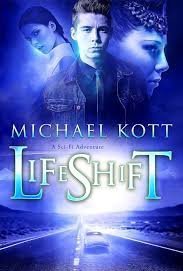
LifeShift
Book
Was Zeus a Greek God or merely a space explorer? Following his mission to bring civilization to...
young-adult
Suswatibasu (1703 KP) rated The Zookeeper's Wife (2017) in Movies
Nov 24, 2017 (Updated Nov 24, 2017)
Story is harrowing and essential but film could have been made better
As a massive fan of biopics, The Zookeeper's Wife is an incredibly important tale of a the real life Polish couple who sheltered Jews in their zoo during the Second World War, helping 300 people to escape from Warsaw.
Dr. Jan Zabinski was the director of the Warsaw Zoo in the 1930's, and along with his wife Antonina and young son, they ensured the safety and care of animals in the area. Their life came to an abrupt halt with the German invasion of Poland in 1939, when most of their animals and structures were destroyed in the bombings and siege of the city. The zoo was closed under German occupation, but the Zabinskis continued to occupy the villa, and the zoo itself was used first as a pig farm and subsequently as a fur farm. All the while, Dr Zabinski smuggled Jewish people out of the Warsaw Ghetto and aided their way out of city, not before allowing them to stay in their own house. He was injured while fighting in the Polish resistance, but the couple were given an honorary title by Yad Vashem (Israel's official memorial for Jewish victims of the Holocaust) for their brave efforts.
Similar in the vein of films such as @Schindler's List (1993), there is an element of a saviour complex in these films, but unlike Steven Spielberg's Oscar-winner, it is less extravagant and less well-made, as there was very little engagement with the Jewish characters - focusing more on Antonina, played by Jessica Chastain. It is definitely heart-wrenching watching films based on the holocaust, and there were scenes I had to turn away from, such as when an elderly woman and her mother were shot dead in the streets by soldiers. The script and cinematography weren't at a high standard, however, and as a result the film definitely fell short. I would suggest reading the book @The Zookeeper's Wife - it has far more detail than the film, in which there were glaringly obvious plot holes.
Dr. Jan Zabinski was the director of the Warsaw Zoo in the 1930's, and along with his wife Antonina and young son, they ensured the safety and care of animals in the area. Their life came to an abrupt halt with the German invasion of Poland in 1939, when most of their animals and structures were destroyed in the bombings and siege of the city. The zoo was closed under German occupation, but the Zabinskis continued to occupy the villa, and the zoo itself was used first as a pig farm and subsequently as a fur farm. All the while, Dr Zabinski smuggled Jewish people out of the Warsaw Ghetto and aided their way out of city, not before allowing them to stay in their own house. He was injured while fighting in the Polish resistance, but the couple were given an honorary title by Yad Vashem (Israel's official memorial for Jewish victims of the Holocaust) for their brave efforts.
Similar in the vein of films such as @Schindler's List (1993), there is an element of a saviour complex in these films, but unlike Steven Spielberg's Oscar-winner, it is less extravagant and less well-made, as there was very little engagement with the Jewish characters - focusing more on Antonina, played by Jessica Chastain. It is definitely heart-wrenching watching films based on the holocaust, and there were scenes I had to turn away from, such as when an elderly woman and her mother were shot dead in the streets by soldiers. The script and cinematography weren't at a high standard, however, and as a result the film definitely fell short. I would suggest reading the book @The Zookeeper's Wife - it has far more detail than the film, in which there were glaringly obvious plot holes.
James P. Sumner (65 KP) rated Men in Black International (2019) in Movies
Jun 20, 2019
Not quite a noisy cricket.
I saw this film with an open mind, figuring (as is sadly the case more and more nowadays) I had seen the best parts of the movie in the trailers. I had seen other reviews which had been overwhelmingly negative. I wasn't expecting much, but it was two hours away from the world, so what the hell.
Definitely not the best film I've ever seen, but surprisingly far from the worst.
The plot is simple enough - there's a mole within MiB that's trying to start a war between a long-forgotten enemy and another race of aliens, which will ultimately endanger the earth. Nothing we haven't seen before.
But it's actually pretty good fun. The chemistry between the two leads (Thor and Valkyrie!) is a joy to watch, and if nothing else, this movie serves to reiterate what we first found out in the "Ghostbusters" remake - Chris Hemsworth is hilarious! His comedic timing is brilliant, and he's a genuinely funny guy which shines in the right role (see "Thor: Ragnarok").
Sadly, I guessed the *big twist* from watching the trailers. Figured it was obvious, as we've all seen this type of film/story before. And if I could figure it out, most other people probably can, too. As the film entered its third act, I found myself hoping my prediction was wrong, just to inject a little more life into the experience, but nope... nailed it.
Whilst there are subtle nods to the original films, they aren't required viewing ahead of watching this. A cross between a sequel and a reboot, it stands well on its own merits.
I think with a film like this, you're never going to get an "Avatar" or a "Shawshank Redemption" experience. Not that this is bad, per se, but because the level of potential quality will always be limited by its content and genre. Same way an "Expendables" movie would never win an Oscar. I think they're brilliant, but they are what they are and nothing more. Same here. It's not a bad film. It's not a great film. It's just a film. Would I have paid to see it in hindsight? Perhaps not. But definitely catch it when it's on Netflix.
Definitely not the best film I've ever seen, but surprisingly far from the worst.
The plot is simple enough - there's a mole within MiB that's trying to start a war between a long-forgotten enemy and another race of aliens, which will ultimately endanger the earth. Nothing we haven't seen before.
But it's actually pretty good fun. The chemistry between the two leads (Thor and Valkyrie!) is a joy to watch, and if nothing else, this movie serves to reiterate what we first found out in the "Ghostbusters" remake - Chris Hemsworth is hilarious! His comedic timing is brilliant, and he's a genuinely funny guy which shines in the right role (see "Thor: Ragnarok").
Sadly, I guessed the *big twist* from watching the trailers. Figured it was obvious, as we've all seen this type of film/story before. And if I could figure it out, most other people probably can, too. As the film entered its third act, I found myself hoping my prediction was wrong, just to inject a little more life into the experience, but nope... nailed it.
Whilst there are subtle nods to the original films, they aren't required viewing ahead of watching this. A cross between a sequel and a reboot, it stands well on its own merits.
I think with a film like this, you're never going to get an "Avatar" or a "Shawshank Redemption" experience. Not that this is bad, per se, but because the level of potential quality will always be limited by its content and genre. Same way an "Expendables" movie would never win an Oscar. I think they're brilliant, but they are what they are and nothing more. Same here. It's not a bad film. It's not a great film. It's just a film. Would I have paid to see it in hindsight? Perhaps not. But definitely catch it when it's on Netflix.
